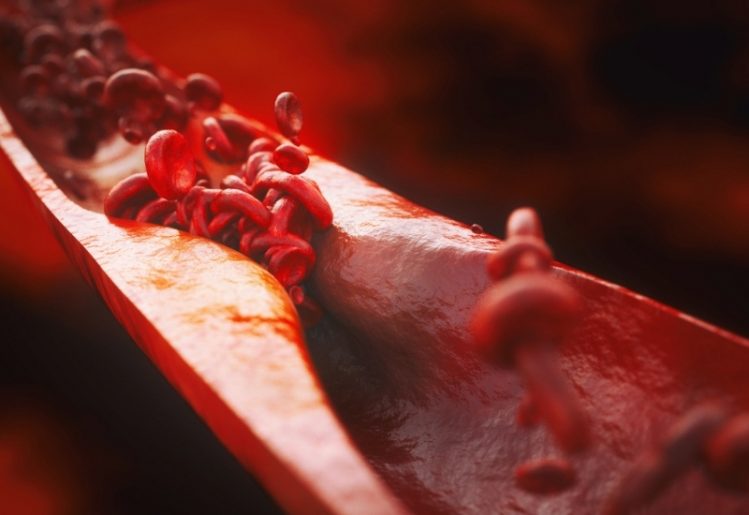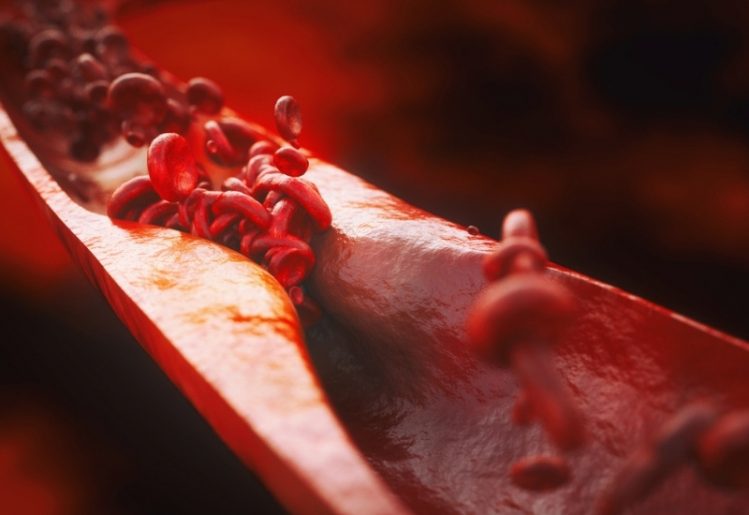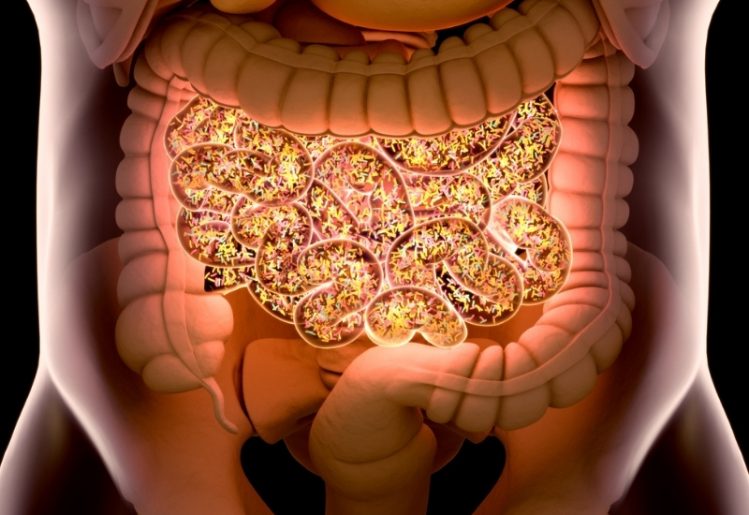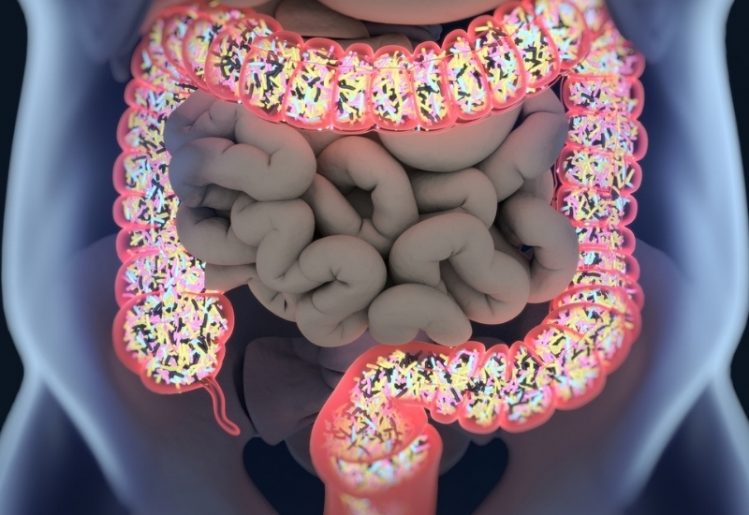Taking good care of your heart will help you live a longer and overall healthier life. With this in mind, there are many commonly accepted practices you can adopt to maintain a healthy cardiovascular system. Recently, heart health research has also uncovered a few surprising new ways to protect your heart and cardiovascular system, including keeping a dog and eating certain foods.
Commonly Accepted Heart-Healthy Activities
The following suggestions can help you maintain good cardiovascular health as you grow older by keeping oxygenated blood flow at an optimum level.
Get a Good Night’s Sleep
 The ideal amount of sleep for adults is seven to nine hours per night. In some studies, getting less than five hours or more than nine hours resulted in a buildup of calcium in the blood; elevated calcium levels are considered an early warning sign of heart disease. Keeping nightly sleep duration between seven and nine hours can help protect against too much calcium in the arteries.
The ideal amount of sleep for adults is seven to nine hours per night. In some studies, getting less than five hours or more than nine hours resulted in a buildup of calcium in the blood; elevated calcium levels are considered an early warning sign of heart disease. Keeping nightly sleep duration between seven and nine hours can help protect against too much calcium in the arteries.
Eat a Healthier Diet
To maintain a healthy heart, it’s important to limit unhealthy fats and high-cholesterol foods, while also avoiding excessive sugar, alcohol and salt consumption. While this may seem like a tall order, it can be easier to accomplish by switching to a primarily plant-based diet. Three-quarters of each meal should be comprised of fruits, vegetables, seeds and nuts. You can add a small portion of lean red meat and whole grains if necessary.
Get More Exercise
The heart is a muscle and, like any other muscle, it grows stronger with regular exercise. Getting a minimum of 30 to 60 minutes of moderate- to high-intensity exercise every day will keep your heart strong. Daily physical activity should consist of both resistance training (weight lifting) and cardio (jogging, bicycling, swimming) to help burn fat and build muscle.
New Heart Health Research Links the Brain and Heart
Recent heart health research has found a strong connection between the brain and the cardiovascular system. In one study, it was found that cardiovascular disease had an adverse effect on cognitive functioning, increasing the rate at which dementia developed. This connection prompted a new study that looked at how genetic and environmental factors affected the development of the brain and the cardiovascular system. The study, which was undertaken at Atlanta’s Emory University, tried to answer this question by looking at twins.
The researchers assembled 272 pairs of fraternal and identical twins for the study, while ensuring all of the subjects had not been diagnosed with dementia or cardiovascular disease. They examined cognitive functioning and compared those results with cardiovascular health, which was measured by taking blood pressure, glucose, cholesterol and body mass measurements. They also considered diet and physical activity levels in determining their findings.
In general, they found that genetic factors seemed to play a large role in cognitive and cardiovascular health. Regardless of whether the subjects were identical or fraternal twins, they seemed to share similar health levels. They also found that, while genetics played a major role, cognitive and cardiovascular health could also be modified through lifestyle habits. The researchers concluded that adopting heart-healthy practices early in life could benefit the heart and the brain simultaneously.
New and Surprising Ways to Keep Your Heart Strong and Healthy
Recently, heart health research has discovered a few new and surprising ways to maintain a healthy heart.
Owning a Dog Protects Heart Health
In looking at the results of two studies, it was found that dog owners are less likely to die following a stroke or heart attack. In addition to reducing the risks of cardiovascular events, the research also found that owning a dog reduced the risks of mortality from all causes.
The first study looked at 186,421 heart attack survivors and 157,851 stroke survivors to see how many of the subjects had owned dogs. They found that dog owners had a significantly reduced risk of death following heart attack or stroke and subsequent hospitalization. Dog owners who had suffered heart attacks had a 33 percent reduced risk of death, while stroke sufferers had a 27 percent lower risk.
Music Reduces Stress That Contributes to Heart Disease
In a separate Brazilian study, researchers found that listening to music while driving also helped reduce the type of stress that contributes to heart disease. The study examined young, inexperienced female drivers between the ages of 18 and 23. None of the subjects had had their driver’s license for more than seven years. The researchers also chose drivers who drove less than twice a week because they felt people who drove more frequently wouldn’t experience the same level of stress.
The test consisted of driving three kilometers over a period of 20 minutes through Manila’s busiest streets. The first time each driver navigated this route, they had to do so with the radio off. The second time, they listened to music as they drove the three kilometers. By measuring the heart rate of each subject, the researchers were able to determine the drivers experienced less stress when they were able to listen to music. When they were driving in silence, their heart rates were higher and exhibited fewer rest periods, indicating heightened levels of stress.
Beans and Peas Provide Cardiovascular Benefits
 Another recent research project focused on the cardiovascular benefits of consuming more legumes, particularly peas and beans. These foods are known to be rich in protein, fiber and micronutrients, while also possessing very low levels of fat and sugar. Due to these health benefits, people suffering from diabetes, low blood pressure and high cholesterol are encouraged to consume more legumes on a daily basis.
Another recent research project focused on the cardiovascular benefits of consuming more legumes, particularly peas and beans. These foods are known to be rich in protein, fiber and micronutrients, while also possessing very low levels of fat and sugar. Due to these health benefits, people suffering from diabetes, low blood pressure and high cholesterol are encouraged to consume more legumes on a daily basis.
The new study found that people who ate more peas and beans exhibited a decreased risk for cardiovascular events. Specifically, the risk of cardiovascular disease was reduced by up to 13 percent, depending on how many legumes were consumed on a daily basis. The more legumes that were consumed, the greater the reduction in risk for developing cardiovascular disease. The researchers noted that eating legumes didn’t seem to affect the likelihood of diabetes, myocardial infarction or stroke. They also added that mortality rates from all causes may not be affected by legume consumption. Future research is needed to verify these findings, but it seems that replacing carbs with legumes can help protect your heart and improve overall longevity.
 There are a number of symptoms to be on the lookout for when it comes to dementia. The most common cognitive change associated with dementia is memory loss. This impairment is generally first noticed by close family members. Other cognitive decline symptoms include confusion, difficulties performing tasks, communication challenges and problems with reasoning and solving problems.
There are a number of symptoms to be on the lookout for when it comes to dementia. The most common cognitive change associated with dementia is memory loss. This impairment is generally first noticed by close family members. Other cognitive decline symptoms include confusion, difficulties performing tasks, communication challenges and problems with reasoning and solving problems. Being social and establishing healthy relationships have both been
Being social and establishing healthy relationships have both been  Diseases that affect the heart and blood vessels all fall under the broader term of cardiovascular disease, and many of those conditions are caused by atherosclerosis. Atherosclerosis is a condition resulting from plaque accumulation on the walls of the arteries, which causes blood flow to become inhibited. Since blood flows more slowly, clots can form that block blood from passing through the arteries and reaching the brain, heart and other vital organs, boosting the probability that a stroke or heart attack will occur.
Diseases that affect the heart and blood vessels all fall under the broader term of cardiovascular disease, and many of those conditions are caused by atherosclerosis. Atherosclerosis is a condition resulting from plaque accumulation on the walls of the arteries, which causes blood flow to become inhibited. Since blood flows more slowly, clots can form that block blood from passing through the arteries and reaching the brain, heart and other vital organs, boosting the probability that a stroke or heart attack will occur. Rather than eating three big meals every day, it’s important to eat wisely. It’s best to start off with a moderate breakfast that includes good natural sources of protein and fiber. An omelet that’s prepared with fresh veggies is one suggestion. For the remainder of the day, choose healthy snacks to munch on periodically, such as almonds, carrot sticks and cheese. This will help you eat less at dinner.
Rather than eating three big meals every day, it’s important to eat wisely. It’s best to start off with a moderate breakfast that includes good natural sources of protein and fiber. An omelet that’s prepared with fresh veggies is one suggestion. For the remainder of the day, choose healthy snacks to munch on periodically, such as almonds, carrot sticks and cheese. This will help you eat less at dinner. Resveratrol is particularly interesting for its antioxidant properties because it can help mitigate cell damage. Under normal circumstances, free oxygen molecules roam the body and attach themselves to healthy cells. The damage these free radical molecules cause through the process of oxidation harms cellular health and increases the risk of disease and infection. However, antioxidants like resveratrol protect the cells in the body by fighting free radicals. Antioxidants can reverse the oxidative damage caused by free radicals by helping to reduce the number of free radicals in the body and protecting healthy cells.
Resveratrol is particularly interesting for its antioxidant properties because it can help mitigate cell damage. Under normal circumstances, free oxygen molecules roam the body and attach themselves to healthy cells. The damage these free radical molecules cause through the process of oxidation harms cellular health and increases the risk of disease and infection. However, antioxidants like resveratrol protect the cells in the body by fighting free radicals. Antioxidants can reverse the oxidative damage caused by free radicals by helping to reduce the number of free radicals in the body and protecting healthy cells. Research has found that resveratrol mimics the results of a calorie-restricted diet, helping those eating a high-calorie diet achieve similar results. In one study, researchers studied two groups of rats who were all fed a high-calorie diet. One group was given resveratrol in addition to their high-calorie diet, and that group showed slower signs of cellular aging than the other group. The rats who consumed resveratrol showed a lower risk for heart disease, diabetes and other age-related conditions. The researchers found that the rats taking resveratrol were similar in health status to rats who consumed an average amount of calories.
Research has found that resveratrol mimics the results of a calorie-restricted diet, helping those eating a high-calorie diet achieve similar results. In one study, researchers studied two groups of rats who were all fed a high-calorie diet. One group was given resveratrol in addition to their high-calorie diet, and that group showed slower signs of cellular aging than the other group. The rats who consumed resveratrol showed a lower risk for heart disease, diabetes and other age-related conditions. The researchers found that the rats taking resveratrol were similar in health status to rats who consumed an average amount of calories. For some time, we have known that there’s a gut-brain connection that relays messages in both directions. For instance, when your brain tells you it’s time to eat, it sends signals to your gut that trigger the sensation of a growling stomach. Conversely, gastrointestinal problems can prompt signals to the brain that cause anxiety or depressive episodes. This relationship has led to the discovery that many metabolic health
For some time, we have known that there’s a gut-brain connection that relays messages in both directions. For instance, when your brain tells you it’s time to eat, it sends signals to your gut that trigger the sensation of a growling stomach. Conversely, gastrointestinal problems can prompt signals to the brain that cause anxiety or depressive episodes. This relationship has led to the discovery that many metabolic health  Probiotics are microbes in your gut that
Probiotics are microbes in your gut that  There are many different factors that help form the gut microbiome. Bacteria begin finding their way to this part of the large intestines immediately after birth; some research suggests the formation of the gut microbiome begins even before birth. Because diet is a significant factor in creating a diverse gut microbiome, a pregnant mother’s diet can influence the unborn child’s microbiome. Once a baby is born, both environment and diet play a part in introducing new types of bacteria into the microbiome.
There are many different factors that help form the gut microbiome. Bacteria begin finding their way to this part of the large intestines immediately after birth; some research suggests the formation of the gut microbiome begins even before birth. Because diet is a significant factor in creating a diverse gut microbiome, a pregnant mother’s diet can influence the unborn child’s microbiome. Once a baby is born, both environment and diet play a part in introducing new types of bacteria into the microbiome. Fiber carries plenty of helpful bacteria to the gut, while also lowering the risks of some types of cancer and heart disease. It can also help with weight loss by controlling hunger cravings.
Fiber carries plenty of helpful bacteria to the gut, while also lowering the risks of some types of cancer and heart disease. It can also help with weight loss by controlling hunger cravings.